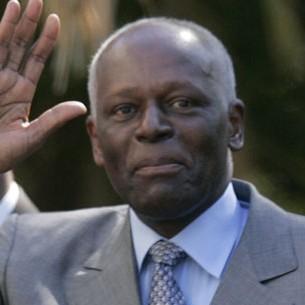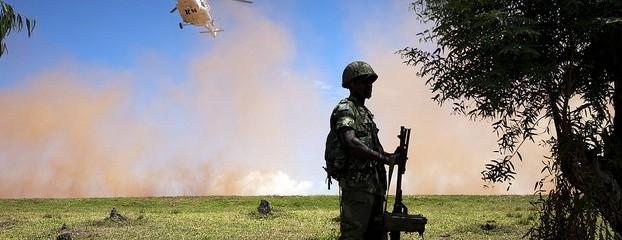Zanzibar: CUF populism raises stakes around secession – By Erick Kabendera

 Zanzibar’s politics have never been predictable, but it now seems things may be changing more permanently. Political wrangles that emerged from the current constitutional review process have brought to the fore an intense debate about the structure of the union itself, with potentially far-reaching consequences.
Zanzibar’s politics have never been predictable, but it now seems things may be changing more permanently. Political wrangles that emerged from the current constitutional review process have brought to the fore an intense debate about the structure of the union itself, with potentially far-reaching consequences.
Opposition parties have for the first time in recent years come together to advocate a three-tier union structure, which entails a government covering Tanganyika and Zanzibar and separate administrations for Zanzibar and the mainland. The Tanzanian ruling party, Chama Cha Mapinduzi (CCM), is however determined to maintain the status quo of a two-government union.
For Zanzibaris the debate seems, in part, to be the expression of brutal historical experience. These are the consequence of the violent 1964 Zanzibar revolution, led by a Ugandan mercenary named John Okello and African members of the Afro-Shiraz Party.
Zanzibar is historically a racially divided but cosmopolitan place made up of Shirazi Persians (who arrived from Iran in the 10th century) and the majority Omani Arabs (who came shortly after Shirazis and are said to have been heavily involved in the slave trade), Indians, who were mainly traders, and Africans, who are seen as descendants of slaves.
However, the Shirazis and the Arabs (who are largely supporters of the CUF [Civic United Front]) still blame Africans for illegally overthrowing the Sultan’s Zanzibar Nationalist Party (ZNP) government, which had won an election after independence in 1963 and thereafter dominated the political system, locking out other ethnic groups.
It is clear from public debate among Zanzibaris that the Arab and Shirazi population now feel that it is time to secede from the union and rebuff the historic gains of the revolution, while the majority black Africans, who are fundamentally CCM supporters, think that a CUF takeover would give the ousted Arabs and economically powerful Shirazis political influence over the islands.
Close followers of Tanzania’s politics saw the tension coming, but the question was whether it would become a full-blown crisis. However, the coming of Uamusho (the Association for Islamic Mobilization and Propagation), an Islamic organisation promoting secession (it is also said to have close links with CUF), whose public meetings have been characterized by violence, and the sympathy of security institutions towards the group, have left many worried about the future of Zanzibar.
Secessionist calls have also united powerful but unlikely opponents. Pushing for autonomy has made the main opposition party, the CUF, the dominant force in Zanzibari politics, and earned them sympathy from some CCM members. This reportedly includes the immediate former President Amani Abeid Karume, son of the Zanzibar founding father, who has explicitly distanced himself from the status quo and supported the three-tier proposal.
Karume’s support is thought to have gained the CUF influence in the main island of Unguja, which has traditionally been a CCM stronghold. The CUF was previously only known for commanding support in Pemba, the smaller of the Zanzibar islands, which has traditionally more closely identified itself with the Arab world.
Such rare unity between CCM and CUF members was last seen in 2010 when the Zanzibar constitution was reviewed to usher in a power-sharing deal between the main political parties. The review provided more political autonomy for Zanzibar and received massive support from both parties.
The current political tension also demonstrates unresolved issues that still exist in the isles. The idea that Oman, which ruled Zanzibar from the late 17th century and continues to have economic influence, will come back and “˜annex’ the islands if the CUF wins, is strong among CCM supporters. Such thoughts may seem far-fetched to outsiders, but they are surprisingly influential for a lot of Zanzibar’s inhabitants.
The trigger for secessionist sentiments was the CUF’s fear that joining the government of national unity after the 2010 elections, which they lost by only 1 per cent, may have impinged on their popularity. They have therefore been persuaded to take up populist ideas for political expediency.
For the mainland government, the union was historically built on the basis of stopping the spread of communism in eastern Africa. This came from a fear (of US origin) that some of the Zanzibar revolutionary leaders had links with international communists and could turn Zanzibar into the “˜Cuba of East Africa’. But the fate of Zanzibar has increasingly become directed by security considerations due to its strategic location and suspicions that a new brand of islamist politics on the islands could breed extremism.
For CCM, the three-tier government union agenda has been a divisive issue. The former Zanzibar President, Aboud Jumbe, lost his presidency and party posts for supporting the agenda. After he stepped down, the current CUF secretary general, Seif Sharif Hamad, wanted to take over but his bid ended in failure. He tried several times, but eventually realized that he would never become president under CCM, and accordingly defected to the CUF. 2015 is likely to become his final bid for the Presidency.
The most likely scenario is that the two-tier government union will remain, with the Karume faction is likely to support CUF in 2015; this puts the CUF in a strong position to win the elections. However, this scenario is also likely to mean that CCM and its government will have to use extreme military force to keep the isles under control.
Zanzibar has a history of imperfect elections resulting in violence, but the rise of street gangs, which have become more common recently due to the growth of secessionist movements and unemployment, could create a volatile and dangerous situation in the year ahead.
Erick Kabendera is a journalist based in Tanzania.




